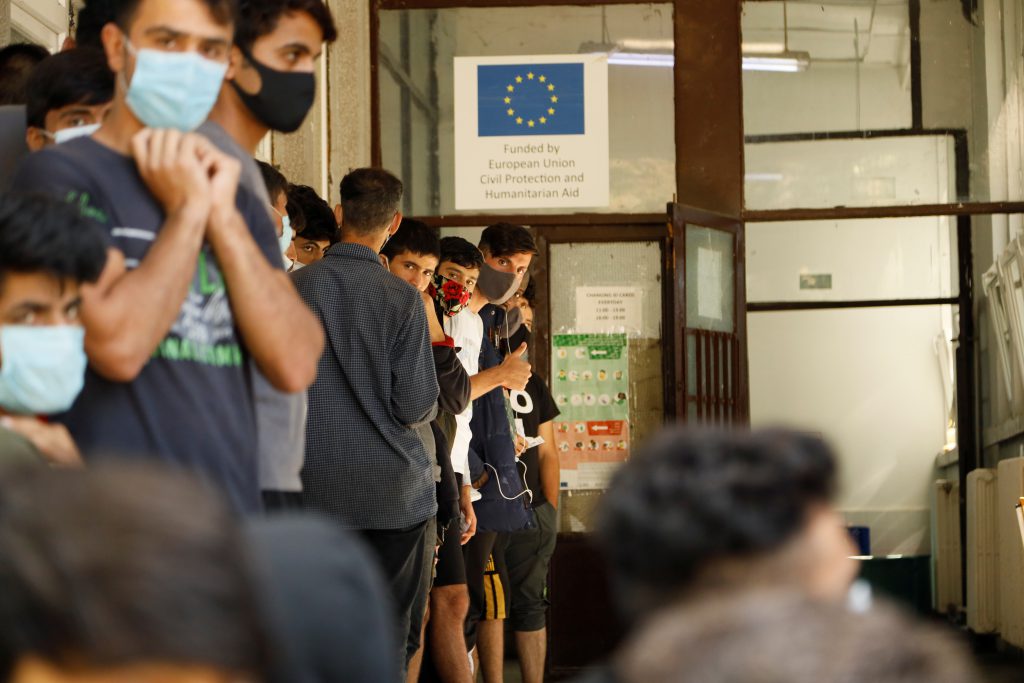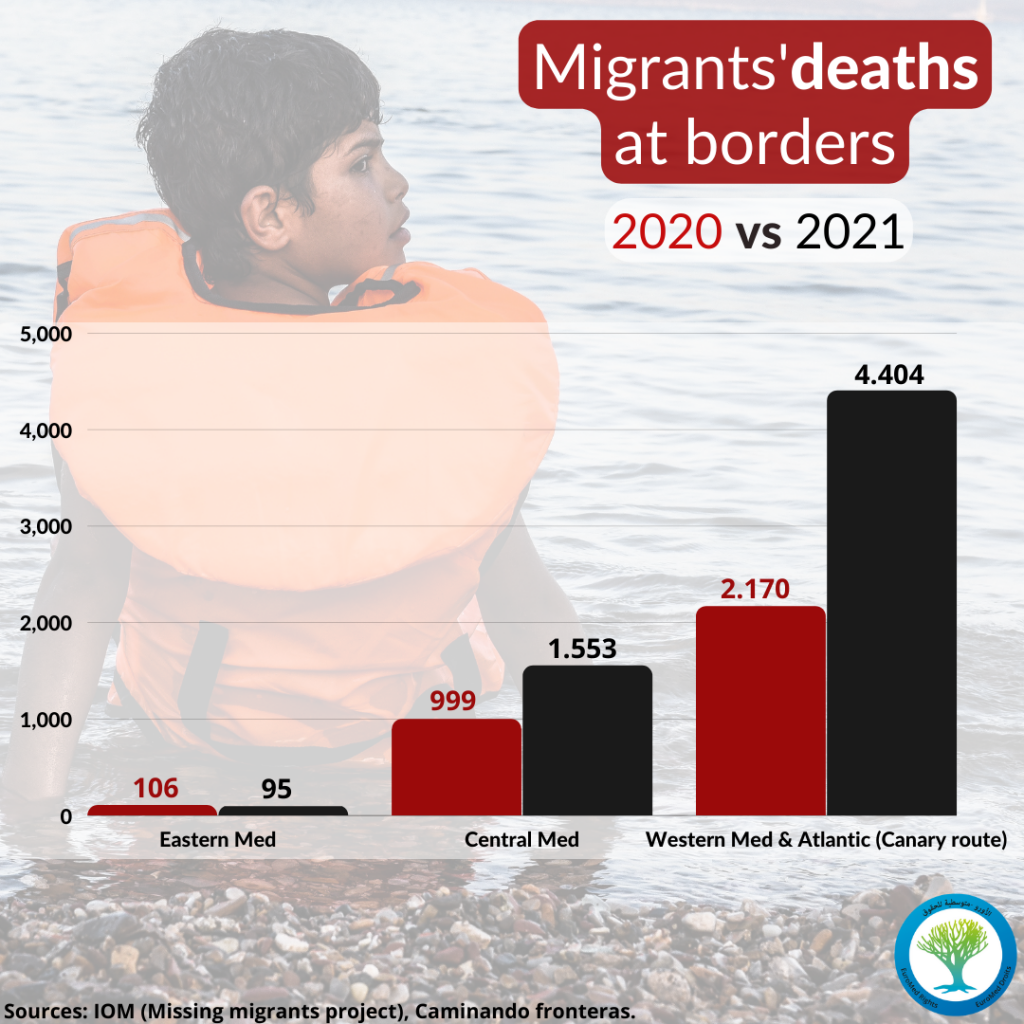The year 2021 saw an increase in arrivals through almost all migratory routes in the Mediterranean with an equal tragic increase in the death toll.
The European Union (EU) and its Member States have repeatedly resorted to pushbacks, which were also on the rise in 2021, and new policies restricting access to the European territory. Their attempts to “close” certain routes – namely the Eastern and Central Mediterranean ones – have only led people fleeing poverty and violence to embark on more dangerous routes and journeys.
In Cyprus, arrivals increased by 123% compared to 2020 reaching 10,400, while in Greece the Coast Guard reportedly rescued more than 29,000 people. However, according to the Greek migration ministry and UNHCR, only 8,000 migrants arrived in Greece last year – half by land, half by sea. What was the fate of the remaining 25,000 rescued migrants? The same discrepancies in numbers were raised with the European Commission last year by five Greek civil society organisations. In Italy, 67,040 people arrived in 2021, including 9,478 unaccompanied minors, while almost 42,000 people arrived in Spain by sea.
More than 6,000 people died trying to cross the Mediterranean in 2021, although the number is likely to be much higher (see visual). The number of pushbacks was also at an all-time high, with at least 15,803 people pushed back from Greece to Turkey, and 32,425 people intercepted in the Central Mediterranean and pushed back to Libya.
EU response and French Presidency priorities
2021 was also marked by several attempts to instrumentalise migrants and refugees for geopolitical and economic purposes as seen in Ceuta in May, when Morocco turned a blind eye to the passage of more than 10,000 people in 48 hours, or at the EU-Belarus border, where at least 21 people died either in freezing temperatures in the woods or drowned trying to cross the river. At least 192 people were violently pushed back.
The EU, as a response to what it called ‘hybrid attacks’, decided to barricade itself against migrants and refugees, with proposals such as the ‘Council Decision on provisional emergency measures for the benefit of Latvia, Lithuania and Poland, the ‘amended Schengen Borders Code’ and the proposal for a ‘Regulation on instrumentalisation of migration’. These proposals raise several concerns in terms of reduced access to asylum, increased accelerated border procedures with reduced rights guaranteed, increased detention, basic reception conditions, ethnic profiling and increased border surveillance.
Since January 2022, France took up the six-month Presidency of the Council of the EU and it seems committed to going in the same direction of the latest Commission’s proposals with increased controls at external borders, increased detention capacities, more readmission agreements and return efforts.
In 2022, instead of repeating the same mistakes leading to further human rights violations, deaths and suffering, it is time for the EU and its Member States to change direction and adopt new migration policies really based on human rights, a humanistic approach, and the universal values proclaimed by the EU.
You can follow bi-monthly updates on migration thanks to our dedicated webpage ‘On the Move’ (available in English and French).


